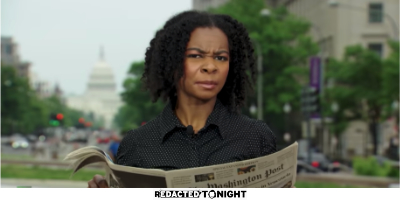

Known as Occupy CNN, protesters claimed that major media networks have intentionally blacked out Sanders' presidential campaign in favor of giving much more airtime to candidates such as Hillary Clinton. Sanders supporters were protesting CNN's coverage of the 2016 United States presidential elections, specifically in regards to the lack of airtime Sanders had received. On April 3, 2016, hundreds of supporters of Bernie Sanders protested outside of CNN's Los Angeles bureau on Sunset Boulevard. presidential election įurther information: Media coverage of the 2016 United States presidential election Occupy CNN protest That's why no one cares about it any more". Robert Fisk criticized CNN for the firing, saying, "Poor old CNN goes on getting more cowardly by the hour. However, at this point, we believe that her credibility in her position as senior editor for Middle Eastern affairs has been compromised going forward." As she has stated in her blog on CNN.com, she fully accepts that she should not have made such a simplistic comment without any context whatsoever. Her reason for her removal was given as "As you know, her tweet over the weekend created a wide reaction. One of Hezbollah's giants I respect a lot." Parisa Khosravi, senior vice president of CNN International, said she spoke with Nasr, and "we have decided that she will be leaving the company". In 2011, Chief Middle East correspondent Octavia Nasr was fired after a tweet saying she was "Sad to hear of the passing of Sayed Mohammad Hussein Fadlallah. Among major broadcast news networks, the CNN audience displays higher levels of partisanship than ABC, CBS and NBC, but lower than Fox News and MSNBC. A 2019 Pew Research survey showed that among Americans who named CNN as their main source for political and election news, 79% identify as Democrats whereas 17% identify as Republicans. In September 2009, a Pew Research Center Poll showed that Democrats were much more likely than Republicans to rate the network favorably, while Republicans were much more likely than Democrats to see CNN unfavorably. So while coverage for Democrats overall was a bit more positive than negative, that was almost all due to extremely favorable coverage for Obama." In a New York Observer column entitled "Clinton News Network", political journalist Steve Kornacki criticized CNN's handling of the November 15, 2007, Democratic presidential debate, calling it biased towards Hillary Clinton. But both Clinton and Edwards ended up with more negative than positive coverage overall. Nearly half of the Illinois Senator's stories were positive (46%), vs. It's not that Democrats, other than Obama, fared well on CNN either. The network provided negative coverage of all three main candidates with McCain fairing the worst (63% negative) and Romney fairing a little better than the others only because a majority of his coverage was neutral. Four-in-ten stories (41%) were clearly negative while just 14% were positive and 46% were neutral. In research conducted by the Shorenstein Center on Media, Politics and Public Policy at Harvard University and the Project for Excellence in Journalism, the authors found disparate treatment by CNN of Republican and Democratic candidates during the earliest five months of the presidential primaries in 2007: "The CNN programming studied tended to cast a negative light on Republican candidates-by a margin of three-to-one. The New York Times has described its development of a partisan lean during the tenure of Jeff Zucker. See also: Media bias in the United StatesĬNN has often been the subject of allegations of party bias.


 0 kommentar(er)
0 kommentar(er)
